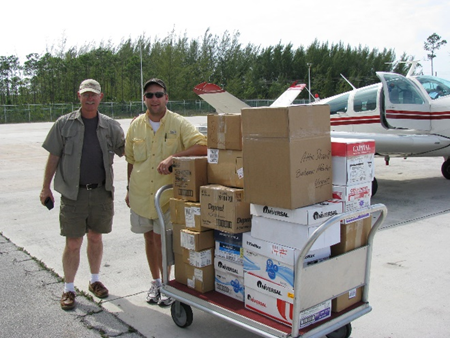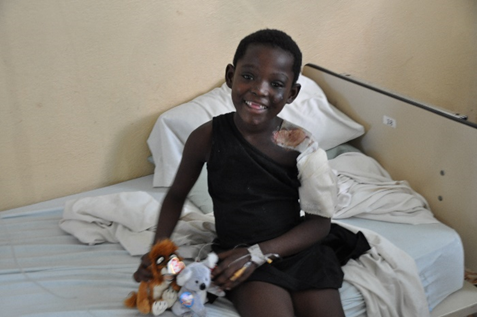Lessons from LeCaye
In February 2010, an earthquake imploded the city of Port au Prince, Haiti, killing nearly 300,000 and
injuring more than a million. The devastation washed many of the wounded and homeless into the countryside where they flooded surrounding communities, overwhelming existing facilities and spawning new cases of old diseases including dysentery and cholera.As I watched the early reporting it was clear that massive
aid would be required and, as it was with Katrina, much of it would be targeted
at the epicenter leaving the other towns and villages to make the best of it.
Knowing there would be a need for volunteers to help move critical supplies
into remote regions by light aircraft and strangely and strongly compelled to apply
what skills and equipment I could offer, I broached the subject with my wife.
“I’d like to go, but it will be challenging.”
“Will it be dangerous?” she asked, already knowing.
“Possibly so, and expensive, probably very expensive.”
“How will we afford it?” I asked.
“By faith” she answered. “Somehow it will all work out.”
“Just promise me you’ll be careful.”
“I promise and know I couldn’t do this without your
blessing.”
I recruited Curt, a young private pilot and former student
to accompany me and help with the radio and paperwork. With final plans
complete, we launched the Beechcraft Bonanza from central Texas, heading for
Florida then Nassau, Bahamas to join a small cadre of doctors, nurses, pilots,
and aid workers. People of faith, agnostics and atheists united in an ad hoc
effort to do something beyond simply writing a check. At the FBO, we lived in a
donated warehouse, sleeping on the floor, rising early each day to find our
airplanes staged and loaded. Eight hours round-trip, across three countries through
uncertain weather, mindless bureaucracy, operating without clearances, making
it up as we went along.
of those who might yet be saved. X-ray developing fluid, crutches and medications delivered quickly to the aid stations, clinics, and tiny hospitals along the eastern coast.
I often wondered as we taxied into the chaos of the small
airport of LeCaye, “Was this doing any good?” “Is any of it getting where it is
needed, or is it instead, being stolen and sold on some blackest of markets?”
Another showed an exhausted nurse consoling a teenaged girl who, living in a country that was a train wreck before, could well be facing a death sentence since there could not be work available for a one-armed young woman. Thousands homeless, no food, no shelter, no clean water…desperation mixed with dysentery.
After nine days, we had done all we could. With fuel bills
maxing out our credit cards, physically exhausted, carrying the burdens of so
much agony and still wondering if any of our efforts really mattered,
surrounded by so much destruction, it was time to leave.
One last load, one more run into LeCaye. As we taxied in on
that beautiful Sunday morning, a crowd of children lined the boundary fence
begging for food. This seemed the ultimate futility, but we had nothing more to
give, guilt riding with us, knowing that in a few hours we would leave this
misery behind. We were met by a young Haitian aid worker dressed in her pure
white habit, who knowing this was our last trip, thanked us for our efforts.
This from a woman who would continue to carry the burden long after we returned
to the first world. As we stood together on that quiet morning, still wracked
by doubt, not wanting to leave with so much yet undone, but knowing we had
given all we could, I asked “Sister, how will this play out? How will these
poor people ever recover? It all seems so hopeless.”
She paused, thinking of how to respond. From a distance came
the sound of hymns. In a grassy opening beside a crumpled church, a small
congregation of refugees who, having lost everything and facing not just an
uncertain future, but rather the promise of continued misery, and who by rights
might have been cursing the god who delivered them into this particular version
of hell, instead were singing songs of hope and giving prayers of thanksgiving
that lingered in the morning stillness.
Returning my attention to the young Haitian nun, she smiled
and whispered…
“By faith…. only by faith.”






Comments
Post a Comment